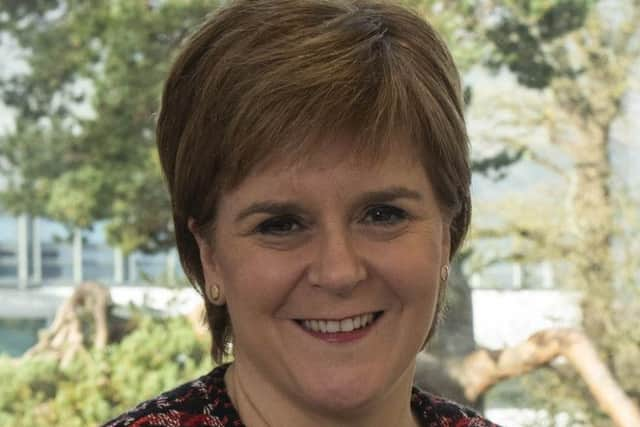Brexit: Does the Scottish Parliament's backing for '˜People's Vote' matter?
Yesterday’s vote on a motion giving ‘unequivocal’ backing to the second referendum on Brexit was one of those which may yet have a long term impact.
The nascent campaign for another referendum has been running almost since it was announced that Britain had voted to leave the European Union.
Advertisement
Hide AdAdvertisement
Hide AdHowever, recently, the slick branding of a ‘People’s Vote’ and a huge march in London means that the movement for a second vote is being taken seriously for the first time.


The motion passed with the support of the SNP, Lib Dems, and Greens, while the Conservative Party opposed it.
All but two of the Labour Party MSPs abstained.
Impact
In terms of the obvious impact, a vote in the devolved parliament is, of course, unlikely to make any immediate changes to the Brexit process. In both Brussels and London, negotiators are determined to reach a final deal on the UK’s terms of departure ahead of a potential emergency summit in mid-December.
However, the fact the Scottish Parliament presented a genuine cross-party effort on the ‘People’s Vote’, is sure to be a factor as the countdown to a deal continues in earnest.
Theresa May has stuck to her twin mantras that ‘Brexit means Brexit’ and that any second vote would be a betrayal of British voters.
Holyrood’s vote, along with the hundreds of thousands who marched demanding a People’s Vote last month, is important momentum for those seeking to halt or delay Brexit.
It might not be enough to stop Britain’s departure in its tracks, but it could embolden MPs to vote down a final deal that is struck by Theresa May, if one is at all.
Nicola Sturgeon’s Journey
Nicola Sturgeon hasn’t always backed a second referendum on Brexit – in fact, it was a potential second referendum on Scottish independence that the First Minister was keen to pursue.
Advertisement
Hide AdAdvertisement
Hide AdThere was precious little effort from the SNP leader in the 12 months after the June 2016 vote on a People’s Vote, or a vote on the final deal.
Instead, the First Minister said even as the dust settled on June 24, after the Brexit referendum, that a second constitutional vote in Scotland was likely.
After the SNP suffered significant losses in the snap general election of 2017 against parties running on an anti-independence platform, it was clear a change of tact was required.
In October of 2017, Ms Sturgeon said that the prospect of a second Brexit referendum could become ‘irresistible’ if talks on a deal stalled.
Just over a year on, the First Minister has gone from that somewhat tepid response to arguably the most senior politician backing a second referendum.
The ‘I’ Word
Ms Sturgeon’s conversion to the People’s Vote cause (she was one of the speakers, via videolink, at the recent march) doesn’t mean that she has abandoned independence.
The First Minister may have put her plans on ‘pause’ after the aforementioned setback in last year’s election, but backing a ‘People’s Vote’ and backing independence are not mutually exclusive.
Her opponents in Holyrood, with the exception of the Green Party, are still firmly anti-independence, however, and even those who back a second vote on Brexit are unlikely to feel the same way about a re-run of the 2014 referendum.
Advertisement
Hide AdAdvertisement
Hide AdYesterday’s vote might not move the dial in terms of independence (there remains as yet no indication that opposition to Brexit results in support for separation among the voting public), but it could harden resolve among Unionists to ensure that the SNP doesn’t use Brexit to boost the independence cause.
In Ms Sturgeon’s own party, there remain those who believe that backing a second Brexit referendum support is the wrong option, and internal SNP strife can only damage the independence cause.
Yesterday’s vote may not feel momentous, but we could yet come to look back on it as a potential turning point in Scotland’s relationship with the EU, and the Union.
